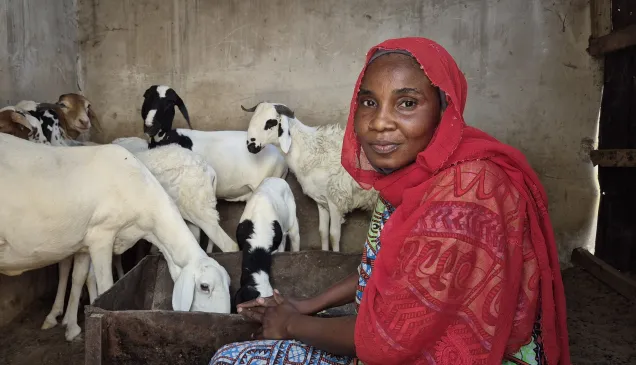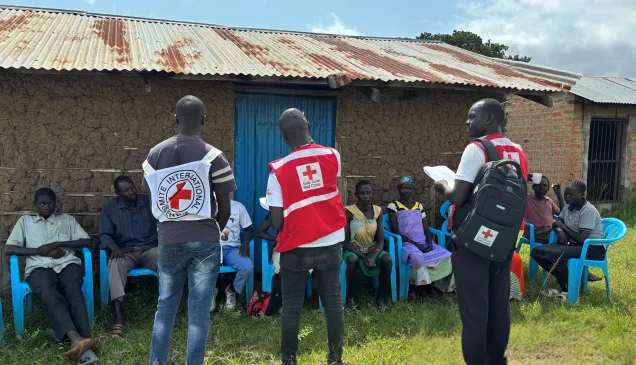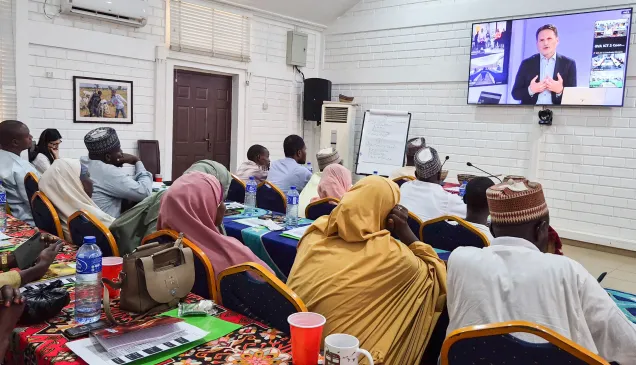Gubio, one of the many camps for displaced people in Maiduguri, is currently home to 38,000 people. In the past few months, some 250 families have arrived. Around two million people in the north-east of Nigeria have been displaced as a result of the protracted conflict there.
COVID-19: Fighting conflict and coronavirus in Nigeria's Borno
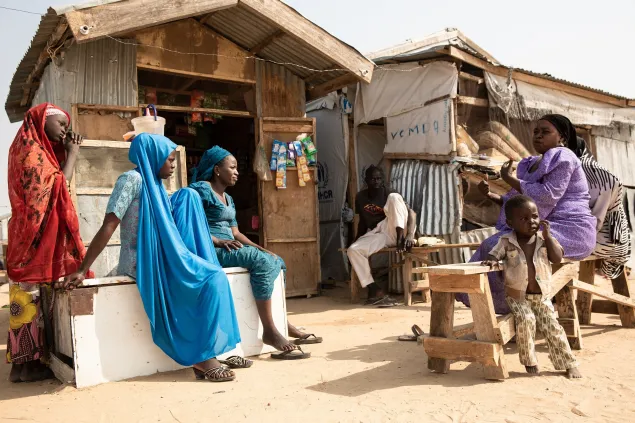
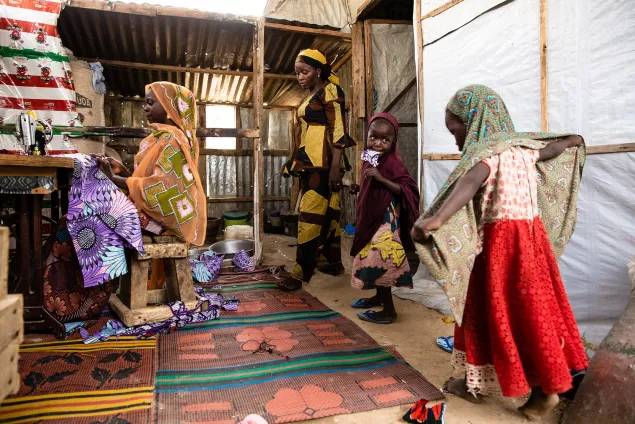
Aishatu, a widow who lives in Bakassi Camp in Maiduguri, shares a four-by-six metres shelter with her ten children. Living conditions in the camps for displaced people make social distancing difficult to practise.
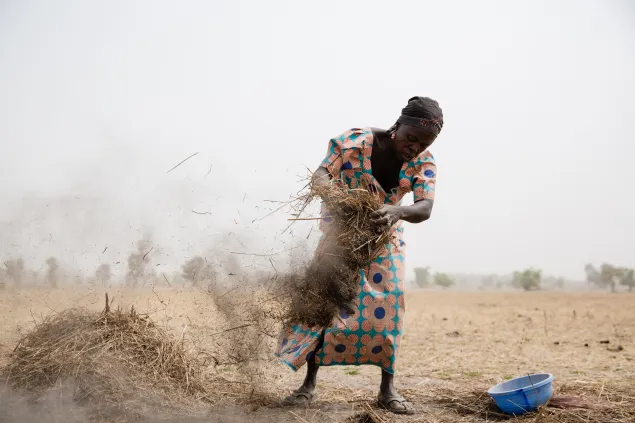
Rebeca lives in an informal internally displaced people settlement on the outskirts of Yola. Her husband has been missing for four years and she works as a daily worker in nearby farms to feed her six children. To supplement her income, Rebeca collects leftover grains of rice in the fields after the harvest.
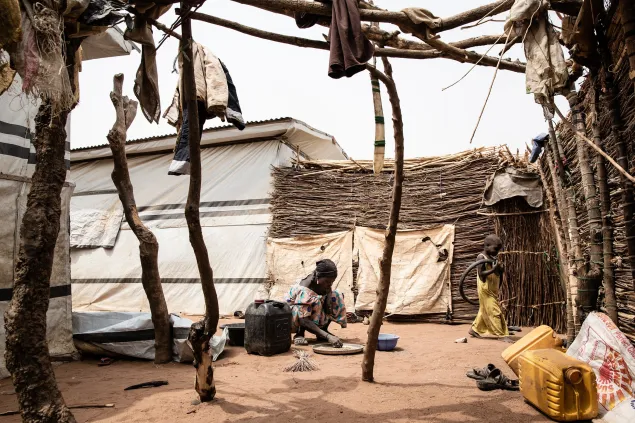
When Yola went into lockdown for two weeks to try to contain the spread of COVID-19, Rebeca could not go out to earn her daily wages. The economic impact of lockdowns on displaced people is particularly hard.
In north-eastern Nigeria, the threat of coronavirus grows among displaced people, but the conflict continues.
COVID-19? Yes, they have heard about it.
Staying at home? They fled their homes because of the fighting.
Social distancing? They would be happy to keep their distance, but how?
They wash their hands as often as they can and hope God protects them from this evil after all they have already been through. The women at the camp for displaced people in Maiduguri, the capital of Borno state, sit so close to each other that their bodies touch and the bright colours of their hijabs blur. Several dozens share a few square metres of shade under a hay roof. Every centimetre of space counts here. Jerrycans and cooking pots are stacked on top of each other and clothes hang from the roof.
Outside, the sun bleaches everything into near-white and the midmorning heat stifles all sound and movement.
The women came from towns and villages in war-torn Borno state, where for the past ten years there has been a conflict between the military and various armed groups. They have joined some two million displaced people in the northeast of Nigeria. "New arrivals" they call them in Gubio, one of the numerous camps for the displaced in Maiduguri.
Being a "new arrival" means you have to start your life from zero, and you may not have a place to live.
Over the past few weeks, black plastic water containers for handwashing have appeared around the camp, while green and yellow posters share public health messages about the coronavirus.
But for the roughly 250 families who have arrived at the camp in recent months, following much of this guidance is impossible.
'I am scared to think what will become of my children and me'
In Bakassi, the oldest of Maiduguri's camps, the majority of the residents have been displaced for several years. There are neat rows of identical tarpaulin huts as far as the eye can see. Every family has a shelter. But many people find social distancing difficult to practise here as well.
Aishatu, a 38-year-old widow, shares a four-by-six metres hut with her 10 children. "I heard that I should avoid crowds," she says. "It makes me nervous because it is very difficult to do."
As the number of COVID-19 cases grows, many Nigerians feel the immediate economic impact of the restrictions on movement. For some of the displaced people, who have lost everything, including their social support networks, the blow is extremely hard. "I am scared to think what will become of my children and me in a time like this," says Rebeca, a mother of six, who lives in one of the informal settlements for displaced people near Yola, the capital of Adamawa state. Four years ago, Rebeca and her children fled their home in southern Borno when their village was attacked. Until this day, she does not know if her husband is dead or alive.
To feed her six children, Rebeca helps at farms on the outskirts of Yola, earning 200 Naira ($0.5) a day. But when Yola went into lockdown for two weeks at the beginning of April, the family lost this income.
Global economic shocks
The experience of Aishatu and Rebeca is unfortunately mirrored around the world. The ongoing economic and food security impact of COVID-19 is massive and appears likely to worsen over time. In countries at conflict, millions already live with little or no health care, food, water and electricity, as well as volatile prices and destroyed infrastructure. COVID-19’s impact could set in motion a vicious cycle of lost income, deepening poverty and hunger.
New ICRC survey data serves as a warning that economic hardships brought about by the COVID-19 pandemic could foster a new aid-dependent generation in countries at conflict without coordinated responses from governments, international institutions and humanitarian and development actors. Early indications in conflict zones where the ICRC operates shows the vast impact of COVID-19.
This photo essay was first published by Al Jazeera.

